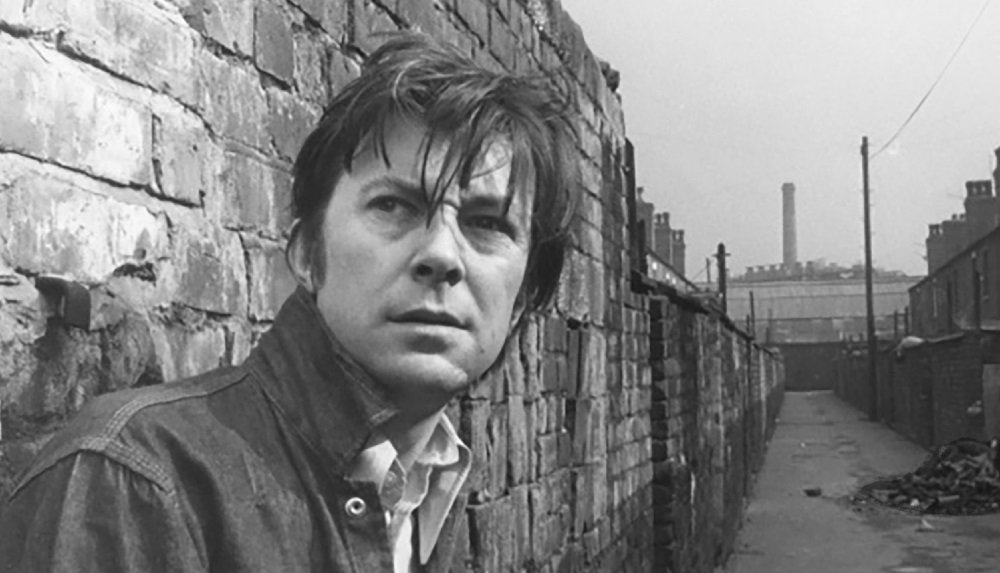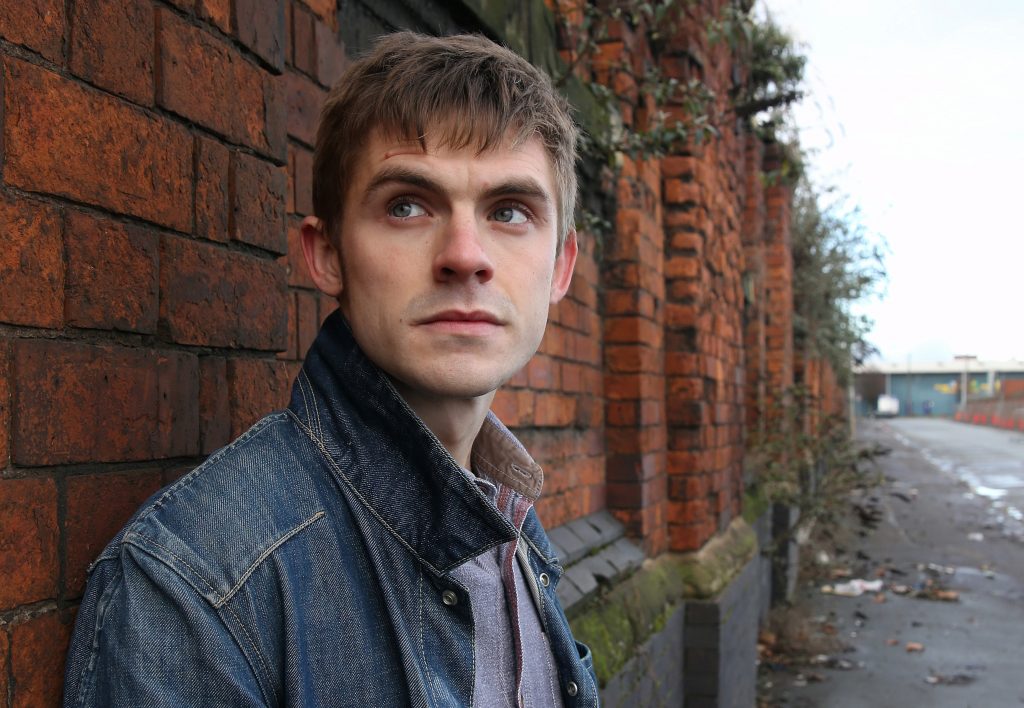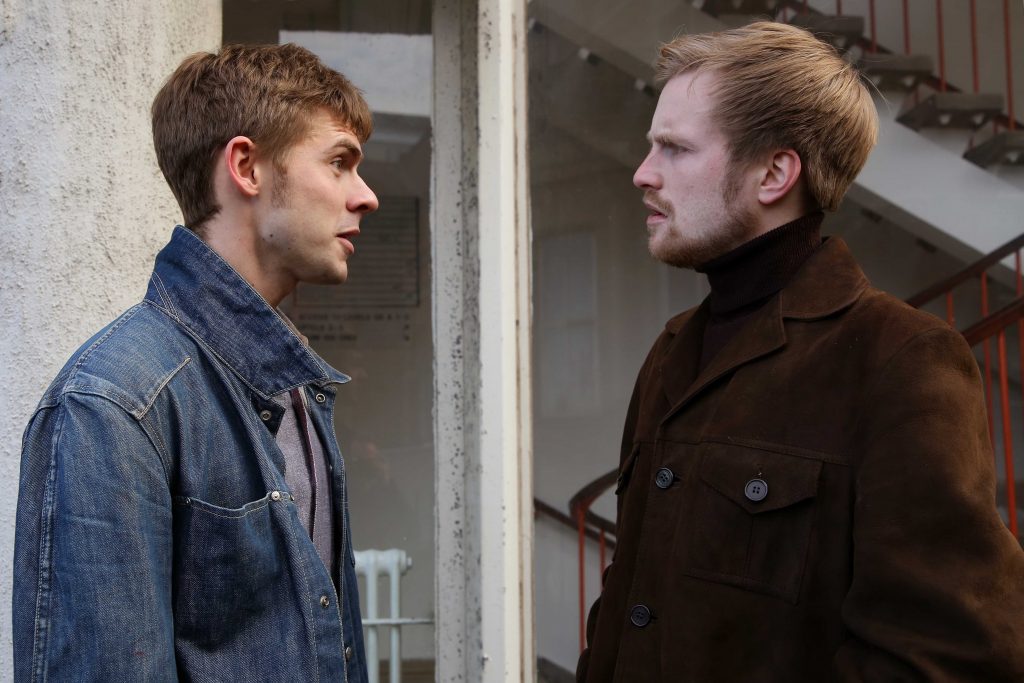‘The Burnley Buggers’ Ball’: How a forgotten slice of gay British history inspired a new play

My new play begins with a blind woman fighting to speak in a public meeting in Burnley in 1971. This packed meeting is an almost forgotten but ground-breaking part of LGBT history; it concerned a plan to open the first gay centre in the UK.
Mrs Swindlehurst is a local woman with a slightly too tight perm, who seems as prim as Mary Whitehouse, but when she speaks everything changes. She tells the meeting about her recently deceased son, Andrew: “Andrew was so much wiser and more loving that either me or his father, like he’d come from another place, somewhere better. But from about 12 or 13 there was a shadow that started to grow over him, and it brought with it a terrible sadness. It was a deep, black void that I can neither fathom nor fill. And it took him over completely. He didn’t just die six month ago. He killed himself. He was 16.
She continues: “We’ve heard all about protecting children tonight, mostly from men who don’t have them or don’t care for them if they do. And I agree. Our children need protecting. There are boys now, in this town today, teenage boys with that shadow growing over them. And it leads only to one place: the grave. I don’t want that for them, for their mothers, for their fathers. I want to save those children. I want this club. I want it. You all bloody should an’ all, if you’ve an ounce of sense about you. My Andrew died, by his own hand. And there’s nothing I can do about that. But I can say this: let him be the last. Dear God, let him be the last.”
At least, that what she’s says in my version of the story, The Burnley Buggers’ Ball. The details of the speech are my invention, but the story of the grieving mother who was brave enough to share her story and stand up for progress is all true. It’s a real Rosa Parks moment. And it’s not even the biggest moment in the play.
As a playwright working with historical material, those moments are rare and I was captivated. Who organised this meeting? How come I’d never heard of it? Why in 1971? What’s a Pendle Pasty? And, most importantly, where is Burnley?

I found a great account of the meeting in Amiable Warriors by Peter Scott-Presland, who agreed to be a historical adviser, but I needed to see the place where the meeting happened.
Some months later, I’m standing in East Lancashire on a Sunday afternoon outside the Central Library, a wonderful stone building from the 1930s that exudes civic pride. I’m on the Burnley LGBT Heritage Trail with the author of the app and pamphlet, Paul Fairweather. I ruefully suggest that the title Hidden History might be an understatement.
The library is the place where the 1971 public meeting took place. It was organised by CHE (Campaign for Homosexual Equality) and was entitled ‘Homosexuals and Civil Liberty’. It’s not open on Sundays, so we can’t go in but Paul tells me about how the National Front were held in the same spot by the Lancashire Police before being made to take off their bovver boots in order to gain entry to the meeting. I love the image of the foyer to the library greeting people with pairs of still warm Doctor Martens all lined up in neat rows on the floor, the threat posed by their owners neutralised by this domestic detail.
An hour into the tour, I hear about a mayor of Burnley who, in addition to being regional milkman of the year in 1997, was arrested for gross indecency in a public toilet. I’m shown the spot where Angels Nightclub was opened by Pan’s People in 1974 and the site where the Thorn Hotel stood, infamous for having a “frisky” residents bar in the 1940s, according to Allan Horsfall, the grandfather of UK LGBT rights and a Burnley resident at the time.
And finally I hear about Mary Winter. In 1978, Mary was a bus driver who was sacked for wearing a Lesbian Liberation badge to work. She turned to her union for support, but they refused to give it to her. Mary mobilised women’s groups around the UK and staged a demo outside Burnley Bus Station (conveniently just behind the library).
There’s something about this story and the story of the public meeting in 1971 that stay with me. They are bookends to the decade with a common theme. They are about ordinary people drawing lines for the first time and saying to the establishment, ‘You are wrong’. They are about people mobilising groups to fight together for civil rights. They are about people losing. The club never opens. Mary never gets her job back. But that’s not the point. The point is that these stories are moments of transition when gay men and lesbians empowered themselves and fought back for the first time. The library meeting is the birth of the gay civil rights movement in the UK. And anyway, there’s something appealing about celebrating heroes who lost. It’s a very English thing to do.

I’ve written The Burnley Buggers’ Ball about the 1971 meeting and found the wonderful Abi Hynes to write Burnley’s Lesbian Liberator about the 1978 demo. The two plays form a double bill with an ensemble cast and take place both in the original sites of the events in Burnley and in showcases in Manchester and Liverpool. They’re commissioned by LGBT History Month nationally as this year’s Festival Theatre to mark the 50th anniversary of the 1967 Sexual Offences Act, which partially decriminalised male homosexual acts. If I had to find a cheesy strapline for these two plays it would be: They lost their fights so that we could win the war. But history rejects this compression. History is always complex and often contradictory. It is a way of forgetting as much as remembering, as any minority knows. So, I’ll resist reducing it to 10 words and invite you instead to enjoy it as two new plays.
The Burnley Buggers’ Ball will be performed free on 18 and 25 February in Burnley Central Library, 24 February at the Martin Harris Centre in Manchester, and on 4 March at The Bluecoat, Liverpool. For more details click here.
For great deals on tickets and shows, visit tickets.attitude.co.uk.
Words by Stephen M Hornby, National Playwright in Residence to LGBT History Month
Follow Inkbrew Productions on Twitter @Inkbrew
More stories:
Over half of gay men say they are ‘unhappy’ with their body – Exclusive
‘There’s more to me than just a body’ – Tom Daley dives into Attitude’s body issue
